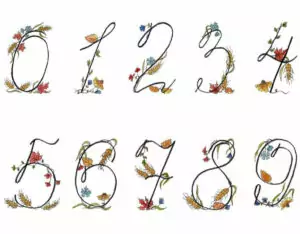When learning a new language, it’s essential to familiarize yourself with polite phrases and expressions. Among these, knowing how to say “you’re welcome” in German is crucial for effective communication and showing respect. In this article, we will explore various ways to express gratitude and respond to it in German, along with useful phrases to remember. Let’s dive in!

✅ AI Essay Writer ✅ AI Detector ✅ Plagchecker ✅ Paraphraser
✅ Summarizer ✅ Citation Generator
Understanding the Basics
Before we delve into the different ways of saying “you’re welcome” in German, let’s start with the basics. In German, “please” is translated as “Bitte,” and “thank you” as “Danke.” The phrase “you’re welcome” is also expressed as “Bitte” (with the optional addition of “schön”). Remember the simple pattern: Bitte ➝ Danke ➝ Bitte. It’s easy to remember and widely accepted.
The Most Common Phrase: Bitte
The most popular way to say “you’re welcome” in German is simply “Bitte.” It is universally accepted and suitable for any situation. However, it’s crucial to pronounce it correctly. As an English speaker, you might be tempted to pronounce it as “Bite,” but the accurate pronunciation is closer to “BIH-teh” or [ˈbɪtə] in IPA.
Expanding Your Options
While “Bitte” covers the basics, it’s always beneficial to have more options at your disposal. Here are some additional phrases to express “you’re welcome” in German:
- Bitte sehr (“You’re very welcome”): This phrase adds a touch of politeness and conveys a greater extent of welcome. It can be used both formally and casually, making it versatile in various situations.
- Bitte schön (“You’re very welcome” or “Nicely welcome”): Similar to “Bitte sehr,” this phrase adds the element of “nice” to the welcome. It signifies a polite and kind quality to the response. It can also be used when offering something to someone.
- Bitte sehr im Voraus (“You’re welcome in advance”): This phrase is unique as it is not a direct response to a “thank you.” It implies that you expect gratitude in the future, making it suitable for close relationships or light-hearted conversations.
- Gern geschehen (“A glad occurrence”): Though not a literal translation of “you’re welcome,” this phrase conveys a sentiment of being glad to have been of help. It’s an earnest response to being thanked and can be used in various situations.
- Gerne! (“My pleasure!”/”Gladly”): This casual expression is similar to saying “happy to help.” It’s appropriate to use among friends and close acquaintances but may not be suitable for formal or professional settings.
- Keine Ursache (“No need to thank me”): Similar to saying “think nothing of it” in English, this phrase conveys that the action being thanked for was not burdensome. It is less formal and best used in casual situations.
- Ohne Ursache (“No worries”): This phrase also signifies “think nothing of it” or “no problem.” It emphasizes that the thanks being offered are without cause, as the action was completed gladly. It is more informal and suitable for casual contexts.
- Mit Vergnügen (“With pleasure”): This formal and fancy expression of “you’re welcome” conveys a sense of luxury and refinement. It is akin to what one might imagine a butler saying in a grand mansion.
- Nichts zu danken (“There’s nothing to thank”): This phrase aligns with the idea that the action being thanked for was no big deal. It is suitable for casual situations and shares a common thread with similar phrases.
- Nix zu danken (“No worries”): A slang version of “Nichts zu danken,” this phrase conveys the same meaning but in a more colloquial and casual manner.
- Kein Problem (“No problem”): Similar to the English expression, “no problem,” this informal phrase is usable in various contexts and carries the same meaning.
- Dafür nicht (“You don’t need to thank me for that”): This colloquial and informal response is common in northern Germany. It conveys the sentiment that the action being thanked for was not significant, and it can be used as a lighthearted reply to a “thank you.”
Conclusion
Mastering the art of expressing gratitude and responding with “you’re welcome” is essential in any language. In German, knowing the various phrases and their appropriate usage allows for smoother and more polite conversations. Remember the basics of “Bitte” and its related phrases, and feel free to explore the other options based on the context and level of formality. With these expressions in your repertoire, you’ll navigate German conversations with ease and grace.
So, the next time someone says “Danke” to you, be sure to respond with confidence and choose the appropriate phrase to express your welcome in German!
Frequently Asked Questions
When can I use “Bitte sehr” and “Bitte schön”?
Both “Bitte sehr” and “Bitte schön” can be used in various situations to express a greater degree of welcome and politeness. You can use them when responding to expressions of gratitude, offering something to someone, or in any context where you want to convey a particularly kind or polite quality to your welcome.
Is there a difference between “Bitte sehr” and “Bitte schön”?
Yes, there is a slight difference between the two phrases. While both express a high level of welcome, “Bitte sehr” emphasizes the extent of the welcome, while “Bitte schön” adds the notion of “nicely” or “nicely welcome.” In terms of formality, they are at the same level and can be used interchangeably in most situations.
What does “Gern geschehen” imply in German?
“Gern geschehen” is an expression that conveys a sentiment of being glad to have been able to help. It’s not a literal translation of “you’re welcome,” but rather a response to being thanked in the same spirit. By using this phrase, you show that you were happy to assist and that it was a positive experience for you.
Can I use “Gerne” as a casual way to say “you’re welcome” in German?
Yes, you can use “Gerne” as a casual way to express “you’re welcome” in German. It is akin to saying “my pleasure” or “gladly” in English, conveying the sentiment that you were happy to help. While it’s suitable for informal situations and interactions with friends, it may not be the best choice in professional or formal environments.
Feel free to use these phrases accordingly based on the context and level of formality to ensure clear and respectful communication in German.
Follow us on Reddit for more insights and updates.





Comments (0)
Welcome to A*Help comments!
We’re all about debate and discussion at A*Help.
We value the diverse opinions of users, so you may find points of view that you don’t agree with. And that’s cool. However, there are certain things we’re not OK with: attempts to manipulate our data in any way, for example, or the posting of discriminative, offensive, hateful, or disparaging material.